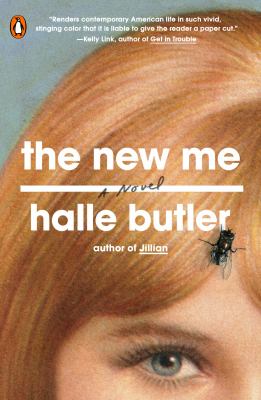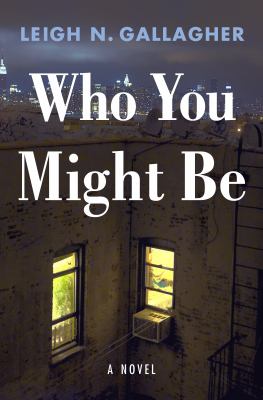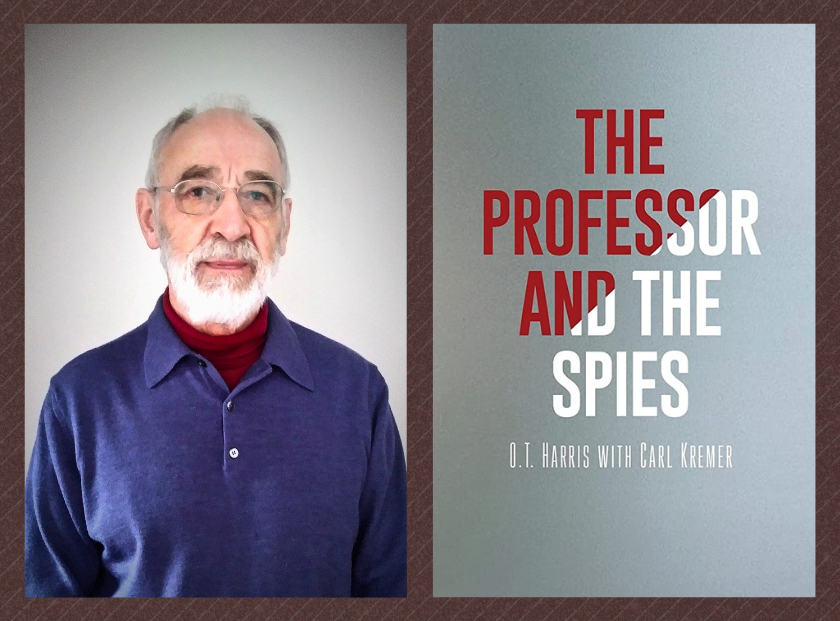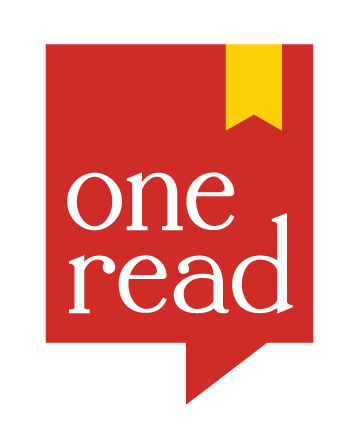 One Read, the community-wide reading program coordinated by the Daniel Boone Regional Library, celebrates its 22nd year this September with a book unlike any other. When Two Feathers, a Cherokee horse diver from a Wild West show, has a tragic accident that leads to the death of her beloved horse and her own serious injury, she is thrust into the strange happenings at the Glendale Park Zoo. The historical fiction “When Two Feathers Fell From the Sky” by Margaret Verble narrowly beat the nonfiction memoir “Why Fish Don’t Exist” by Lulu Miller to be named this year’s One Read.
One Read, the community-wide reading program coordinated by the Daniel Boone Regional Library, celebrates its 22nd year this September with a book unlike any other. When Two Feathers, a Cherokee horse diver from a Wild West show, has a tragic accident that leads to the death of her beloved horse and her own serious injury, she is thrust into the strange happenings at the Glendale Park Zoo. The historical fiction “When Two Feathers Fell From the Sky” by Margaret Verble narrowly beat the nonfiction memoir “Why Fish Don’t Exist” by Lulu Miller to be named this year’s One Read.
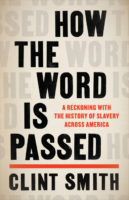 Another nonfiction book the One Read Reading Panel took on is “How the Word Is Passed” by Clint Smith. Smith takes readers on a tour of the often untold stories behind some landmarks in America. At each stop, he examines how our country memorializes and reckons with the legacy of slavery, and does so with lyrical, evocative prose.
Another nonfiction book the One Read Reading Panel took on is “How the Word Is Passed” by Clint Smith. Smith takes readers on a tour of the often untold stories behind some landmarks in America. At each stop, he examines how our country memorializes and reckons with the legacy of slavery, and does so with lyrical, evocative prose.
 Francisco Cantú’s “The Line Becomes a River” sheds light on another sometimes misunderstood and often heavy topic: the border between the U.S. and Mexico. Cantú grew up in the shadow of the border and eventually became a U.S. Border Patrol agent and served for four years. He shares his experiences as an agent, as well as the perspectives of some of those attempting to make the cross. With an even hand, Cantú presents a tough topic and does so without losing the humanity at its core.
Francisco Cantú’s “The Line Becomes a River” sheds light on another sometimes misunderstood and often heavy topic: the border between the U.S. and Mexico. Cantú grew up in the shadow of the border and eventually became a U.S. Border Patrol agent and served for four years. He shares his experiences as an agent, as well as the perspectives of some of those attempting to make the cross. With an even hand, Cantú presents a tough topic and does so without losing the humanity at its core.
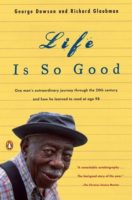 For another book bursting with humanity, I turn to “Life Is So Good” by George Dawson and Richard Glaubman. This memoir tells the extraordinary journey of Dawson who learned to read at the age of 98. Dawson lived for over a century and recounts his experiences as an eyewitness to 20th-century America. While he has had more than his fair share of tragic experiences, he never allows that to stop him from seeing all that is good in life.
For another book bursting with humanity, I turn to “Life Is So Good” by George Dawson and Richard Glaubman. This memoir tells the extraordinary journey of Dawson who learned to read at the age of 98. Dawson lived for over a century and recounts his experiences as an eyewitness to 20th-century America. While he has had more than his fair share of tragic experiences, he never allows that to stop him from seeing all that is good in life.
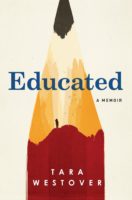 Another author who lacked traditional education is Tara Westover, author of “Educated.” Westover didn’t set foot in a classroom until she was 17 years old. She was raised in a fundamentalist family in Idaho and spent most of her earlier years learning about herbs and prepping for the end of the world, not for college. Despite this, she educated herself all the way to Brigham Young University, then to Harvard, and eventually to Cambridge.
Another author who lacked traditional education is Tara Westover, author of “Educated.” Westover didn’t set foot in a classroom until she was 17 years old. She was raised in a fundamentalist family in Idaho and spent most of her earlier years learning about herbs and prepping for the end of the world, not for college. Despite this, she educated herself all the way to Brigham Young University, then to Harvard, and eventually to Cambridge.
 Our reading panel did not only read works of nonfiction: Octavia Butler’s genre-defying novel “Kindred,” was also considered. In this thought-provoking story, Dana, a Black woman living in 1970s Los Angeles is suddenly whisked through time into antebellum Maryland and saves a young white boy from drowning. Though she makes it back home, she continues to be pulled to and fro through time, saving the boy repeatedly while coming to grips with who he is and how their lives are inextricably entwined.
Our reading panel did not only read works of nonfiction: Octavia Butler’s genre-defying novel “Kindred,” was also considered. In this thought-provoking story, Dana, a Black woman living in 1970s Los Angeles is suddenly whisked through time into antebellum Maryland and saves a young white boy from drowning. Though she makes it back home, she continues to be pulled to and fro through time, saving the boy repeatedly while coming to grips with who he is and how their lives are inextricably entwined.
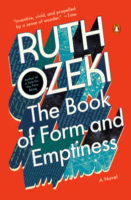 Another book touching on multiple genres is Ruth Ozeki’s “The Book of Form and Emptiness.” After the tragic death of his musician father, Benny begins to hear voices from objects around his house. Meanwhile, Benny’s mother develops a hoarding problem in her grief, rendering the house a hectic cacophony for Benny. He finally finds refuge in the public library, and there he discovers a whole new world. This is a beautiful tale about mental health, grief and love.
Another book touching on multiple genres is Ruth Ozeki’s “The Book of Form and Emptiness.” After the tragic death of his musician father, Benny begins to hear voices from objects around his house. Meanwhile, Benny’s mother develops a hoarding problem in her grief, rendering the house a hectic cacophony for Benny. He finally finds refuge in the public library, and there he discovers a whole new world. This is a beautiful tale about mental health, grief and love.
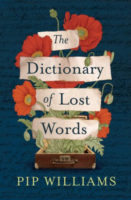 “The Dictionary of Lost Words” by Pip Williams is also a book about a book. Esme’s father and his team of lexicographers are collecting words for the very first “Oxford English Dictionary,” but she steals one of the words after it falls to the floor of their workroom. She begins to rescue other words that don’t make the cut for the dictionary, thus creating her own “Dictionary of Lost Words.” This delightful novel is a celebration of words and the power they have to shape our world.
“The Dictionary of Lost Words” by Pip Williams is also a book about a book. Esme’s father and his team of lexicographers are collecting words for the very first “Oxford English Dictionary,” but she steals one of the words after it falls to the floor of their workroom. She begins to rescue other words that don’t make the cut for the dictionary, thus creating her own “Dictionary of Lost Words.” This delightful novel is a celebration of words and the power they have to shape our world.
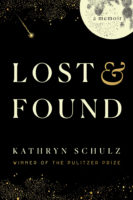 Lastly, the panel read “Lost & Found” by Kathryn Schulz. In the last months of her father’s life, Schulz meets and falls in love with the woman she will eventually marry. This memoir weaves together strands of grief, love, loss and celebration seamlessly to portray the complexity of the human experience.
Lastly, the panel read “Lost & Found” by Kathryn Schulz. In the last months of her father’s life, Schulz meets and falls in love with the woman she will eventually marry. This memoir weaves together strands of grief, love, loss and celebration seamlessly to portray the complexity of the human experience.
Join us in September to explore the topics and themes of “When Two Feathers Fell From the Sky,” through art, music, discussions, films and more. Visit www.dbrl.org/one-read later this summer for details.

